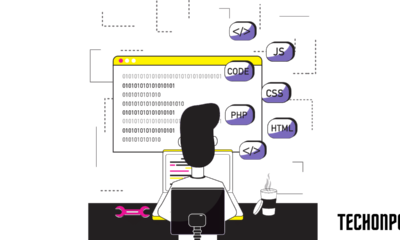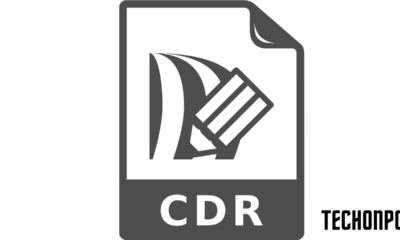Education
The Impact of Computers on Patient Care
Published
2 years agoon
By
techonpc
Photo by Anna Shvets on Pexels.com
As the world becomes increasingly digitized, it’s no surprise that computer usage has begun to seep into all aspects of everyday life—including health care. From patient health records to surgical robots, computers are playing a larger role in patient care than ever before. But what does this increased reliance on technology mean for patients and doctors? In this article, explore the impact of computers on patient health and how this growing trend is changing the doctor-patient relationship.
A medical computer makes it easier to access accurate information
Medical computers have had a profound impact on patient care. They allow physicians to keep track of patients’ histories, medications, and laboratory results. This information can be accessed by physicians anywhere in the world. In addition, medical computers can help physicians make diagnoses and prescribe treatments. For example, they can calculate drug dosages and identify potential interactions between drugs. Medical grade computers also enable physicians to order tests and view images of patients’ internal organs.
Computers also increase the accuracy of information. The computer can automatically calculate dosages of medication based on weight and other factors. This eliminates errors that can occur when someone manually calculates dosages. In addition, bar coding technology enables nurses to scan a patient’s identification bracelet prior to administering medication or treatment. This verifies that the correct patient is receiving the correct medication at all times.
Medical grade computers allow them to make more informed decisions about a patient’s care
The use of computers in the medical field has allowed for more accurate and timely patient care. A medical computer can help to keep track of a patient’s health at any type of healthcare facility. It allows them to make more informed decisions about a patient’s care. The computer can also provide quick access to medical research and other resources. This can help the doctor provide the best possible care for the patient.
Patient records can be managed through an electronic device
Computer use has helped to manage and organize a large number of patient records. This is important because it allows health care providers to have easy access to records during a patient visit or prior to one. And this can help to avoid potential medication interactions and provide a more accurate diagnosis. Additionally, computerized health records can help to improve the quality of patient care by identifying areas where patients may be at risk for certain conditions. Computers also provide fast access to medical records. A doctor can quickly review a patient’s medical history by accessing it on a computer screen. This saves time since the doctor does not have to search through paper charts looking for relevant information about a particular patient.
Medical grade computers have made it easier to order tests and medications for patients.
Computers have revolutionized the ordering of tests and medications for patients. Physicians can now order tests and medications for their patients with just a few clicks of the mouse. This has made it easier for physicians to order the correct tests and medications for their patients. It has also made it easier for physicians to track their patients’ test results and medication allergies.
Healthcare professionals can collaborate with the use of computer technology.
Computers improve communication between doctors and nurses. Nurses can enter information into the computer regarding a patient’s condition, treatment plan, and medication schedule. This information is then available to the doctor when he or she is reviewing the patient’s chart. This allows for more effective communication between the doctor and nurse, which leads to better care for the patient.
Medical grade computers make it easier to provide high-quality patient care.
Lastly, computers enhance decision-making abilities. By accessing databases containing current research studies and clinical guidelines, doctors can make better decisions about how best to treat their patients. Additionally, physicians can use software programs that simulate different treatment scenarios. These programs allow doctors to see how various treatments might affect a particular patient. This helps doctors choose the most appropriate course of treatment for their patients.
Overall, the impact of computers on patient care has been overwhelmingly positive. They have helped to improve efficiency and accuracy in many ways, which has led to better care for patients.
Follow Me

Unleashing the Power of the Office Accelerator: Maximizing Productivity and Efficiency in the Workplace with Office 365 Accelerator

Unlocking the Hidden Potential of Your Website: Strategies for Growth

From AI to VR: How Cutting-Edge Tech Is Reshaping Personal Injury Law in Chicago
Trending

 Microsoft4 years ago
Microsoft4 years agoMicrosoft Office 2016 Torrent With Product Keys (Free Download)

 Torrent4 years ago
Torrent4 years agoLes 15 Meilleurs Sites De Téléchargement Direct De Films 2020

 Money4 years ago
Money4 years ago25 Ways To Make Money Online

 Torrent4 years ago
Torrent4 years agoFL Studio 12 Crack Télécharger la version complète fissurée 2020

 Education3 years ago
Education3 years agoSignificado Dos Emojis Usado no WhatsApp

 Technology4 years ago
Technology4 years agoAvantages d’acheter FL Studio 12

 Technology4 years ago
Technology4 years agoDESKRIPSI DAN MANFAAT KURSUS PELATIHAN COREL DRAW

 Education3 years ago
Education3 years agoBest Steph Curry NBA 2K21 Build – How To Make Attribute, Badges and Animation On Steph Curry Build 2K21

You must be logged in to post a comment Login